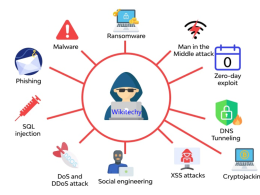Introduction: Argentina Profit Surge
In recent times, MercadoLibre, the leading e-commerce platform in Latin America, has been defying the odds in its home country, Argentina. Despite facing various challenges, the company has managed to achieve significant profit surges. In this article, we will delve into the reasons behind MercadoLibre’s optimistic outlook and explore how it has navigated through the obstacles.
MercadoLibre’s Growth in Argentina:
Argentina has been a market with immense potential, but it is also known for its economic instability and uncertainties. MercadoLibre entered the scene in 1999 and has since steadily grown to become one of the region’s most prominent e-commerce players. Over the years, it has expanded its offerings, including online marketplace services, fintech solutions, and logistics support. This diversification has played a crucial role in its resilience amid challenges.

Overcoming Challenges: The Key Factors:
The path to success for MercadoLibre in Argentina has been anything but smooth. The country has faced various economic crises, inflation fluctuations, and regulatory complexities. However, the company’s ability to adapt, innovate, and stay ahead of the curve has been central to its continued growth. By closely monitoring market trends and consumer behavior, MercadoLibre has been able to make strategic decisions to counter challenges effectively.
One of the significant challenges has been currency devaluation, impacting the purchasing power of consumers. In response, MercadoLibre introduced innovative financial services, offering payment solutions and credit options that cater to the needs of its customers. These efforts not only boost consumer confidence but also foster loyalty, driving repeat business.
Innovations and Diversification:
MercadoLibre’s success can be attributed, in part, to its continuous focus on innovation. The company has invested heavily in technology, enhancing its platform’s user experience, and streamlining processes. User-friendly interfaces, secure payment gateways, and efficient logistics have contributed to customer satisfaction.
Moreover, realizing the importance of diversification, MercadoLibre expanded its service portfolio to include MercadoPago, a fintech platform that facilitates secure online payments. This move not only provided an additional revenue stream but also made it an indispensable part of the digital ecosystem for both buyers and sellers.
In recent years, MercadoLibre’s venture into logistics has been another game-changer. By bolstering its delivery and fulfillment capabilities, the company has reduced delivery times and improved customer satisfaction, creating a competitive edge.
Conclusion:
MercadoLibre’s success story in Argentina exemplifies the significance of adaptability and innovation in navigating through challenges. By expanding its offerings, embracing technology, and diversifying its services, the company has managed to achieve remarkable profit surges. While Argentina’s economic landscape may remain uncertain, MercadoLibre’s optimistic outlook proves that with the right strategies, businesses can thrive even in the face of adversity.










